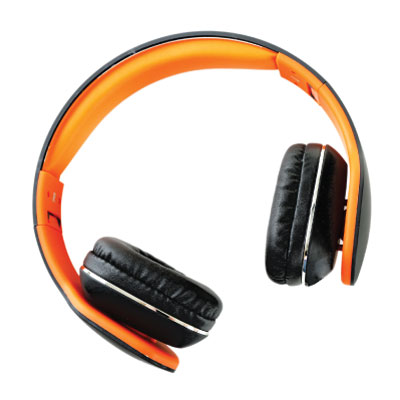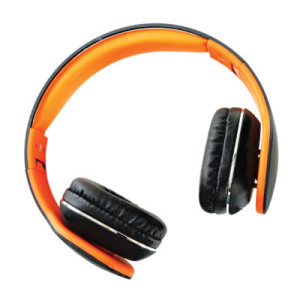
People with disabilities from culturally diverse communities sharing practical tips about living well. Listen to our content sorted by language at speakmylanguage.com.au The Speak My Language (Disability) program involves people with disabilities from culturally and linguistically diverse backgrounds, and other guest speakers, sharing practical tips and resources to support living well with a disability. Speak My Language (Disability) is funded by Commonwealth Department of Social Services and is proudly delivered via an historic partnership between all State and Territory Ethnic and Multicultural Communities‘ Councils across Australia.
Episodes

Tuesday Oct 24, 2023
Aktif Olun! (Get Active!)
Tuesday Oct 24, 2023
Tuesday Oct 24, 2023
İyi yaşamaktan bahsettiğimizde, engelli olsun ya da olmasın- bir şey vardır ki herkes için geçerlidir ki bu aktif olmak! Bugünkü Speak My Language (Disability), bölümünde, özellikle zihinsel ve fiziksel sağlığı iyi korumak için aktif olmanin ne kadar değerli olduğu hakkında konuşacağız.
Kazadan önce amatör bir boksör ve Aussie Rules oyuncusu olan Nazim, rehabilitasyon sırasında bile spordan vaz gecmedi, tekerlekli sandalye ragbisinde yer buldu ve sekiz yıl sonra Sydney 2000 Oyunları'nda Paralimpik ilk maçına çıktı.
Transcript
Tolga: İyi yaşamaktan bahsettiğimizde, engelli olsun ya da olmasın- bir şey vardır ki herkes için geçerlidir ki bu aktif olmak!
Bugünkü Speak My Language (Disability), bölümünde, özellikle zihinsel ve fiziksel sağlığı iyi korumak için aktif olmanin ne kadar değerli olduğu hakkında konuşacağız.
Haydi once uyarlanabilir sporlar hakkinda konusmakla baslayalim.
Uyarlanabilir spor, özellikle engelli kişiler için uyarlanmış veya oluşturulmuş bir spordur. Bu sporlar eğlence amaçlı olduğu kadar rekabetçi de olabilir.
Ne güzel ki, Avustralya bizlere birçok uyarlanabilir spor türü sunabilmektedir. Elektrikli Tekerlekli Sandalye Hokeyinden Tekerlekli Sandalye Tenisine ve Okçuluğa kadar her mevcut. Hatta Kör kriketi ve Kör Golfu bile var!
Aslında Uyarlanabilir sporlar, temel aldıkları sporlara benzemekle beraber oyuncuların engellerini karşılamak için farklı şekilde oynanmakta. Örneğin, kör futbolunda, sporcular oyuncular arasında eşitlik olduğundan emin olmak için göz bağı veya maske takarlar – bunun nedeni de bazı kör insanların farklı görme seviyelerine sahip olmalarıdır.
Bugünkü ilk konuğumuz, uyarlanabilir sporlar hakkında her şeyi bilen biri, tekerlekli sandalye ragbisinde ülkemize altın madalya getiren paralimpik atlet Nazım Erdem.
Naz, omurilik yaralanması geçirdikten sonra rehabilitasyon sırasında tekerlekli sandalye ragbisine başlamış, ama bu spor onun için sadece bir rehabilitasyon yolu olarak kalmamış- ve hatta sonrası çok daha fazlası olmuş.
Naz, bize tekerlekli sandalye ragbisi ile yasadığın bu yolculuktan biraz bahseder misin?
Nazim: Sekiz ay sonra, kazadan sonra Canberra’ya gittik, yarim saat yol arabayla. Bir basketbol salonunda dort ayri takim vardi. Tekerlekli sandalyelerle bir oyun oynuyorlardi. Baktim hepsi wheelcharde olmalarina ragmen carpisiyorlar, hareketliler, Bayaga sevindim. Hani mutsuz degillerdi, bayaga guluyorlar, konusuyorlardi.Cok iyi birseydi benim icin. Ben onlari oyle gorunce biraz da Avustralya Futboluna benzettim, hani timespot olarak, fiziksel bir oyun olarak. Hic carpismadan korkmuyorlardi. Wheelchair de olmalarina ragmen herkes tam tersi carpisip yere dusuyor sonra guluyor egleniyorlar sonra yardimcilar yere dusenleri kaldiriyorlar sonra yine devam ediyorlardi. Cok hosuma gitti. O aksam bayaga sevindim. Tekrar geri donduk belki iki uc gun arkadaslarla beraber hep ondan bahsettik, hani cok iyi bir spor diye. Sadece spor icin degil ama kendine kuvvet vermek icin, hem de exercise yapmak icin, hersey icin iyi bir şeydi.
Tolga: Olimpiyatlarda gerçek anlamda gayet rekabetçi bir şekilde tekerlekli sandalye ragbisi oynamaya devam ettin. Bu nasıl bir şeydi? Anlatabilir misin?
Nazim: Sidney bizim icin iyi gitti yani finale ciktik. Amerikayla altin madayla icin oynamaya basladik. Bir puanla kaybettik ve gumus Madalya aldik Sidneyde. Sidney benim icin ilk oyundu ondan sonra dort ayri paralimpik oyunlara katildim. 2004’te Atinaya gittim. Atina bizim icin hic iyi gitmedi, orada besinci geldik. Yani diyecek birsey yok. Ondan sonra 2008’de Pekine gittik. Orada tekrar Amerika ile finale kaldik. Yine ikinci geldik ve gumus Madalya kazandik. Pekinden sonra 2012’de Londra oyunlari vardi. Yine Amerikayla finale kaldik ama bu sefer biz yendik ve ilk altin madalyayi kazandik. Bir de cok kolay yendik. Londradan sonra Rio oyunlari vardi, 2016 senesinde ve o sene yine finale kaldik bu sefer Kanada ile ve yine altin Madalya kazandik.
Tolga: Belki hepimiz Paralimpik olmayacağız, ama inanın hepimiz spordan gerçek anlamda faydalanabiliriz. Vücudunuzu sınırlarına göre yapacağınız uygulanabilir yoga gibi bir şey bile aktif kalmak için harika bir yol olabilir.
Herkes gibi, engelli insanlar da spor aktivitelerinden birçok şey kazanabilir.
Para-sporlara katılmakla ilgileniyorsanız, www.sports.org.au adresini ziyaret edebilirsiniz.
Kör veya görme engelliyseniz, www.blindsportsaustralia.com.au adresinden kendiniz icin uygun bir spor secebilirsiniz.
About the guest speaker
(
When we talk about living well, one thing applies to everyone - whether they have a disability or not - and that’s staying active. In today’s episode of Speak My Language (Disability), we will talk about the value of keeping active, especially to maintain good mental and physical health.
An amateur boxer and Aussie Rules player before his accident, Nazim found a new sporting outlet in wheelchair rugby after being introduced to it during rehab, making his Paralympic debut eight years later at the Sydney 2000 Games.
Transcript
Tolga: When we talk about living well, one thing applies to everyone - whether they have a disability or not - and that’s staying active.
In today’s episode of Speak My Language (Disability), we will talk about the value of keeping active, especially to maintain good mental and physical health.
Let’s start by talking about adaptive sports first.
Adaptive sports is a sport that has been adapted or created for persons with a disability. These sports can be recreational or competitive.
Australia offers many kinds of adaptive sports. There is everything from Electric Wheelchair Hockey to Wheelchair Tennis to archery. There is even Blind cricket and Blind Golf!
Adaptive sports are similar to the sport they are based on, but are played differently to cater to the players’ disabilities. For example, in blind football, the athletes wear blindfolds or a mask to make sure there is equality among the players–this is because some blind people may have different levels of vision.
Our first guest today is Nazım Erdem, a paralympic athlete who knows everything there is to know about adaptive sports, who brought a gold medal home to our country in wheelchair rugby.
Naz started wheelchair rugby during rehab after suffering a spinal cord injury, but the sport hasn't just been a rehab route for him- it's become much more after that.
Naz, tell us a bit about your journey with wheelchair rugby.
Nazim: Eight months later, after the accident, we went to Canberra, half an hour by car. There were four separate teams in a basketball court. They were playing a game with wheelchairs. I saw that even though they were all in wheelchairs, they collided, they were moving—they were very happy. You know, they were not unhappy, they were laughing and talking a lot.
It was a very good thing for me. When I saw them like that, I compared them to Australian Football, as a physical game. They were not afraid of any collision. Even though they were in wheelchairs, everyone was actually colliding and falling to the ground, then laughing, having fun, then the helpers were picking up those who fell on the ground, then they continued again. I really liked it. I was pretty happy that night. We came back again, maybe for two or three days, we talked about it with friends, you know, because it's a very good sport. It was good for everything, not just for sports, but to give strength to oneself, as well as to exercise.
Tolga: You actually went on to play wheelchair rugby competitively in the olympics. What was it like?
Nazim: Sydney went well for us, so we reached the final. We started playing with America for the gold medal. We lost by one point and got the Silver Medal in Sydney. Sydney was the first game for me, after that I participated in four separate Paralympic games. I went to Athens in 2004. Athens did not go well for us, we came fifth there–so there’s not much to say. After that, we went to Beijing in 2008. There we made it to the final with America again. We came second again and won the Silver Medal. After Beijing, there was the London Games in 2012. We made it to the final with America again, but this time we beat them and won the first gold medal. And we beat them very easily! After London, there were Rio games, in 2016 and that year we reached the finals again, this time with Canada and we won the gold medal again.
Tolga: Not all of us will become paralympians, but believe me, we can all benefit from sport. Even something like adaptive yoga, where you stretch your body based on its limits, can be a wonderful way to stay active.
Like everyone else, people with disabilities can get a lot out of sport activities.
If you are interested in getting involved in para-sports, visit www.sports.org.au
If you are blind or visually impaired, you can find sports for you at www.blindsportsaustralia.com.au
About the guest speaker
)

No comments yet. Be the first to say something!